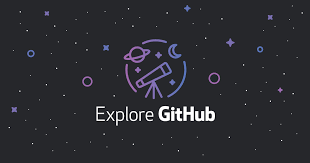Unleashing Innovation: The Power of Open Source Code Repository
The Power of Open Source Code Repository
Open source code repositories have revolutionised the way software development is conducted in the modern era. These platforms serve as central hubs where developers from around the world can collaborate, share code, and contribute to projects of all sizes.
One of the key benefits of open source code repositories is the transparency they offer. Developers can access the entire history of a project, view changes made by others, and track issues and bug fixes. This level of visibility fosters trust within the developer community and promotes accountability.
Collaboration is at the core of open source code repositories. Developers can work together on projects regardless of their physical location, sharing knowledge and expertise to create high-quality software. By allowing for contributions from a diverse range of individuals, these platforms enable innovation and creativity to flourish.
Furthermore, open source code repositories help to accelerate the pace of software development. Rather than reinventing the wheel with each project, developers can leverage existing code libraries and frameworks shared on these platforms. This not only saves time but also promotes best practices and standardisation across projects.
Security is another important aspect of open source code repositories. With many eyes scrutinising the codebase for vulnerabilities, issues can be identified and resolved quickly. This collaborative approach to security helps to create more robust and resilient software that can withstand cyber threats.
In conclusion, open source code repositories play a vital role in driving innovation, collaboration, and transparency within the software development community. By embracing these platforms, developers can harness the collective power of global talent to create cutting-edge solutions that benefit users worldwide.
Understanding Open Source Code Repositories: Frequently Asked Questions
- What is an open source code repository?
- How does an open source code repository work?
- What are the benefits of using an open source code repository?
- Which are the popular open source code repositories available?
- How can I contribute to projects on an open source code repository?
What is an open source code repository?
An open source code repository is a centralised platform where developers can store, manage, and collaborate on software projects. It serves as a digital archive that houses the source code, documentation, and other project-related files, allowing developers to access, modify, and contribute to the codebase. Open source code repositories promote transparency by providing a complete history of project changes and facilitating collaboration among developers worldwide. These platforms play a crucial role in fostering innovation, sharing knowledge, and accelerating the pace of software development by enabling developers to work together efficiently and effectively on diverse projects.
How does an open source code repository work?
An open-source code repository functions as a centralised platform where developers can store, manage, and collaborate on software projects. It typically utilises version control systems such as Git to track changes made to the codebase over time. Developers can upload their code to the repository, make modifications, and propose changes through pull requests. This collaborative approach allows multiple contributors to work on the same project simultaneously, ensuring transparency and accountability in the development process. Users can access the repository to view project history, track issues, and contribute new features or bug fixes. By leveraging the power of community-driven development, open-source code repositories facilitate seamless collaboration and foster innovation in the software development ecosystem.
What are the benefits of using an open source code repository?
Utilising an open source code repository offers a multitude of benefits to developers and software projects. One key advantage is the transparency it provides, allowing developers to access the entire history of a project, track changes, and collaborate effectively. The platform fosters a culture of trust and accountability within the developer community. Additionally, open source repositories facilitate seamless collaboration among developers worldwide, enabling knowledge sharing and collective problem-solving. By leveraging existing code libraries and frameworks shared on these repositories, developers can accelerate their projects while promoting best practices and innovation. The collaborative nature of open source code repositories also enhances security measures by enabling rapid identification and resolution of vulnerabilities. Ultimately, embracing an open source code repository empowers developers to create high-quality software efficiently and effectively.
Which are the popular open source code repositories available?
A variety of popular open source code repositories are available to cater to the diverse needs of developers worldwide. Among the most widely used platforms are GitHub, GitLab, and Bitbucket. GitHub stands out as a prominent choice, offering a user-friendly interface, robust collaboration tools, and a vast library of open source projects. GitLab is another popular repository known for its integrated CI/CD pipelines and extensive project management features. Bitbucket, with its seamless integration with other Atlassian products, is favoured by teams looking for a comprehensive solution. These repositories provide developers with the tools they need to collaborate, share code, and contribute to an array of projects across different domains.
How can I contribute to projects on an open source code repository?
To contribute to projects on an open source code repository, you can start by familiarising yourself with the project’s guidelines and documentation. Most repositories have a contributing guide that outlines the process for submitting contributions, such as bug fixes, feature enhancements, or documentation updates. You can also engage with the project’s community through forums, chat channels, or issue trackers to discuss potential contributions and seek guidance. By following best practices, communicating effectively with other developers, and respecting the project’s coding standards, you can make meaningful contributions to open source projects and help drive innovation within the developer community.




